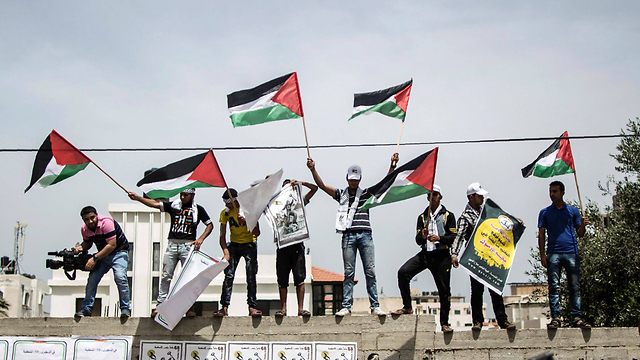Op-ed: A strong and confident nation can recognize the wrongs it has done without undermining the foundations of its existence. It is time to accept that we have also done wrong in the past.
The Polish government protests wordings which fail to make it clear enough that the Poles were not the ones who operated the death camps, but rather the German occupiers. It also denies that Poles carried out pogroms against Jews during and after the war.
Poland is right to argue that it was a victim of Nazi Germany, which saw the Poles as inferior creatures and murdered 3 million of its non-Jewish citizens, but it was, and still is, infected with anti-Semitism. Alongside righteous people who risked and even sacrificed their lives to save Jews, masses of Poles were indifferent to their fate and even took part in their persecution. The anti-Semitism in Poland was not reduced during the Communist regime, and the last survivors were exiled from Poland following the Six-Day War. We ask for self-examination, and Poland refuses.

Its refusal is not surprising, as no nation is eager to confess its sins. That requires a deep shock which sometimes makes it possible to change the national narrative. Assimilating the new narrative involves diligent and exhausting trimming, because the denial is like a stubborn weed that pops up as the memory grows weaker. Social crises encourage its growth, and denial is evidence of their seriousness.
Poland refuses because it is caught in a deep crisis and because the Poles see themselves as victims. Victims tend to devote themselves to their misery. It’s true that the Poles have suffered greatly. In the end of the 18th century, their country was divided by its neighbors and all their revolts were crushed. The country, which is squeezed between world powers that use it as a buffer against their rivals, was liberated only following World War I, and only 20 years had passed before it fell into the hands of Soviet Russia, which de facto controlled Poland almost until its disintegration.
Anyone demanding that his fellowman beat his breast should demand it first and foremost from himself. A strong and confident nation can recognize the wrongs it has done without undermining the foundations of its existence. Is that what we are doing? The political establishment’s attempts to forbid Israel’s Arabs to express the loss of their homeland in any way show that we do not trust ourselves.
Just like the Poles, we also feel like eternal victims and our tremendous achievements do not alleviate our illness. We are afraid we will be weakened and fall if we confess that we are flawed. The lies we tell ourselves are like morphine which has to be increased in dosage in order to paralyze the worm of doubt biting into our feeling of justice.
The Nakba (how many times must this be repeated?) is not a holocaust. The Palestinian propagandists are nurturing this equation for reasons which cannot be covered here, but I am not concerned about them—I am concerned about my people.
I can speak for myself: The first doubts regarding the Zionist narrative appeared in my heart when I found out that my educators had lied to me when they said that all the Arabs who left their communities in the War of Independence were tempted by their leaders’ promises that they would reinherit the Jewish property. According to this story, none of the Arabs were murdered after being defeated, and none were banished in order to extend the boundaries of our rule. Only when I reached the brink of adulthood I found out that we had banished, destroyed, and in quite a few cases even murdered. The circumstances can be explained, but we must acknowledge the facts and let the mourners weep over their fate.
In an important book which has not received sufficient attention, “Living on the Edge,” researcher Uriel Abulof deals with the influences of the fear of cessation among small states, including Israel. Allow me to quote one sentence: “The moral discourse which reflects changes in the nation’s character and in the ways it deals with the horror may also point to its end—for good or for bad. The rise and fall of people takes place not only through blood and fire, but also through forgetfulness, shame, injustice and guilt.”
As reported by Ynetnews
